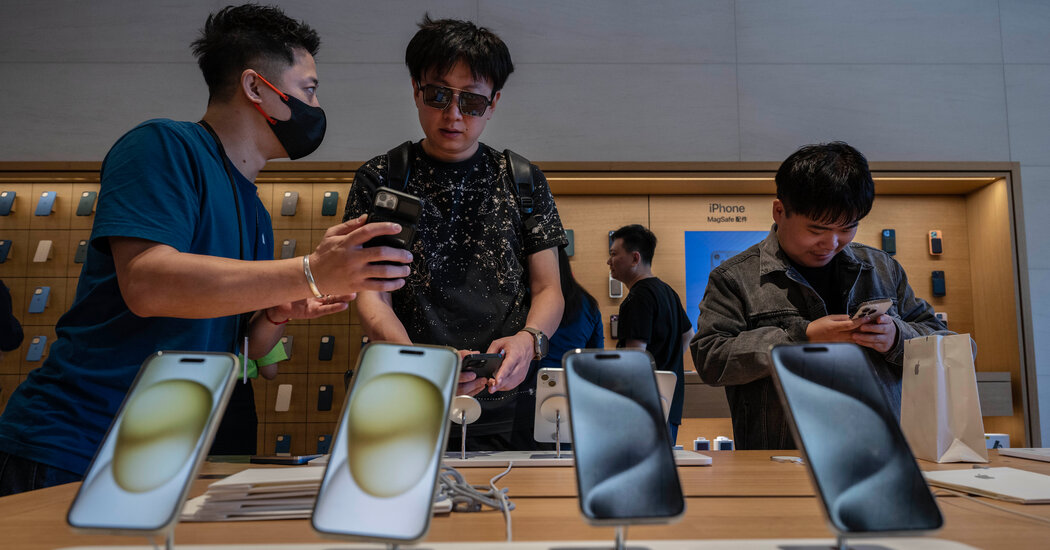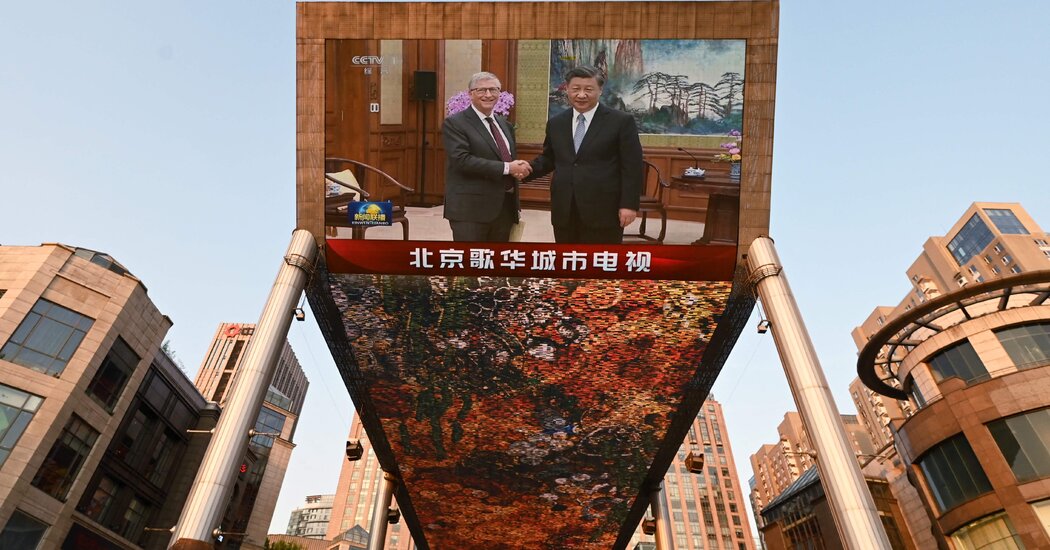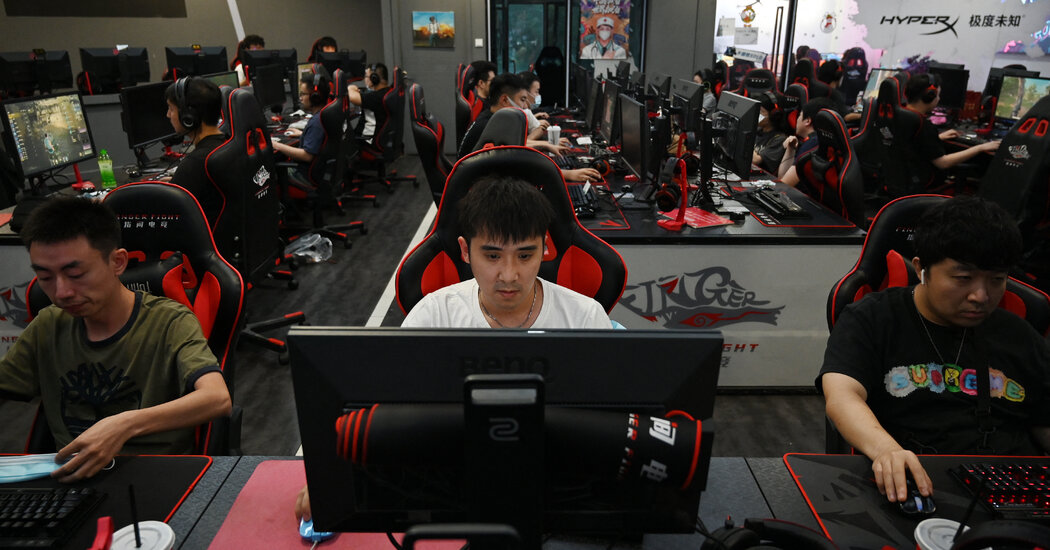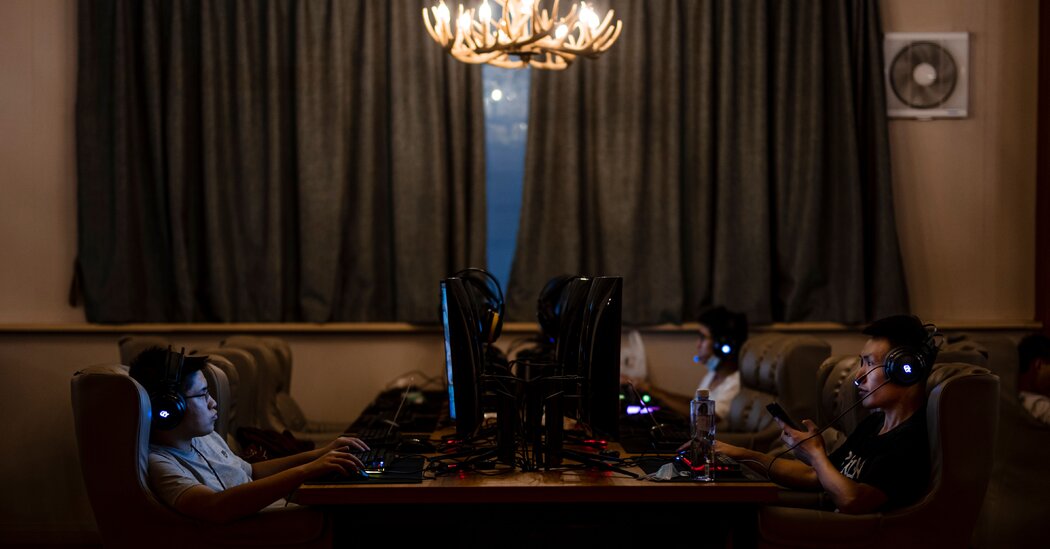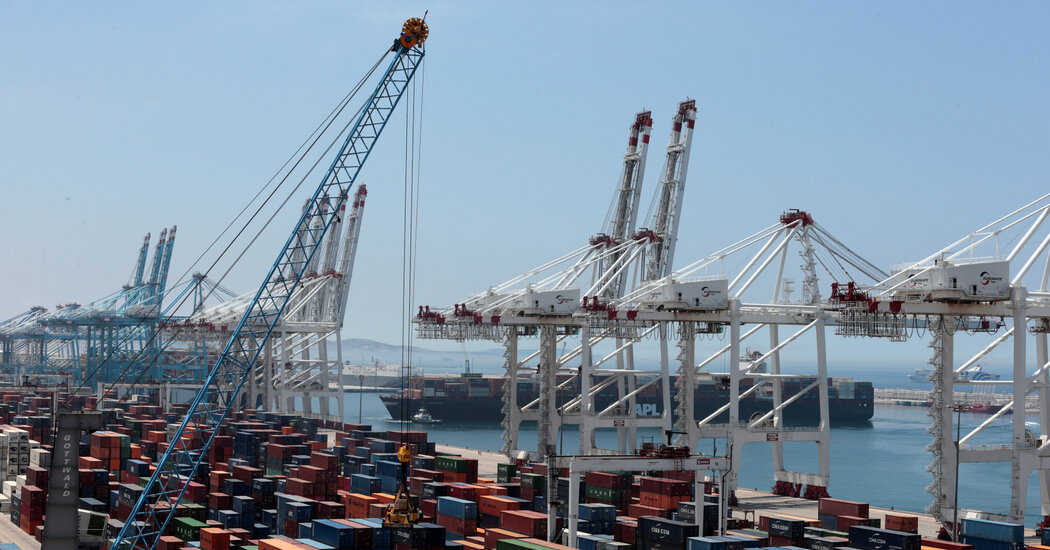Ever bought a discounted new phone from Apple? For most people, the answer is no. That’s because Apple doesn’t really do discounts. But in China, Apple is slashing the price of some of its latest iPhones by $70 amid worries that Chinese consumers have cooled on the brand. That would save a buyer about 6 to 8 percent, based on prices on Apple’s China website. It has also knocked $112 off the price of some MacBook Air laptops. The sale will start on Thursday and run through Sunday. Cutting prices…
Tag: Computers and the Internet
Microsoft Debates What to Do With A.I. Lab in China
When Microsoft opened an advanced research lab in Beijing in 1998, it was a time of optimism about technology and China. The company hired hundreds of researchers for the lab, which pioneered Microsoft’s work in speech, image and facial recognition and the kind of artificial intelligence that later gave rise to online chatbots like ChatGPT. The Beijing operation eventually became one of the most important A.I. labs in the world. Bill Gates, Microsoft’s co-founder, called it an opportunity to tap China’s “deep pool of intellectual talent.” But as tensions between…
The Next Front in the U.S.-China Battle Over Chips
NASA has chosen the technology to help it land future spacecraft on unmapped planets. Meta uses the technology for artificial intelligence. Chinese engineers have turned to it to encrypt data. And it could represent the next front in the semiconductor trade war between the United States and China. The technology is RISC-V, pronounced “risk five.” It evolved from a university computer lab in California to a foundation for myriad chips that handle computing chores. RISC-V essentially provides a kind of common language for designing processors that are found in devices…
A.I. Giant Tied to China Under Scrutiny
A U.S. congressional committee has asked the Commerce Department to look into whether a giant technology company controlled by the ruling family of the United Arab Emirates should be put under trade restrictions because of its ties to China. The company, G42, specializes in artificial intelligence and other emerging technologies, and is overseen by Sheikh Tahnoon bin Zayed, the national security adviser of the Emirates and a younger brother of the country’s ruler. It has signed recent agreements with prominent American technology companies, including Microsoft, Dell and OpenAI. A Silicon…
Tencent and Netease Rally on Signs China May Ease Gaming Proposal
The stock prices of Chinese video game companies rebounded Wednesday after investors seized on signals that the government was having second thoughts about proposed regulations on gaming. Since the weekend, regulators have attempted to calm the market after shares of the two largest video game companies, Tencent and Netease, plunged on Friday. When trading resumed after the four-day holiday weekend in Hong Kong, Tencent rose about 4 percent and Netease jumped 12 percent, recovering some of their losses. The events of the past several days underline the push-and-pull forces in…
China Unveils New Restrictions on Online Video Games
The Latest Chinese regulators announced new restrictions Friday on online video games, which they said were aimed at tightening the management of the industry and protecting the country’s minors. The proposed rules, which are subject to public comment before being made final, are the latest in several rounds of curbs on the industry over the last few years. The plan would call for users to have spending limits on the game platforms and would prohibit minors from tipping videogame live streamers. The draft rules, issued by the National Press and…
Topics Suppressed in China Are Underrepresented on TikTok, Study Says
Topics often suppressed by the Chinese government within its borders, including Tibet, Hong Kong protests and the Uyghur population, appear to be unusually underrepresented on TikTok compared with Instagram, according to a report published Thursday by online researchers. The findings could add to a wave of concern that Beijing may be influencing content on the popular video platform. TikTok is owned by ByteDance, a Chinese company. The report, from the Network Contagion Research Institute at Rutgers University, analyzed the volume of posts with certain hashtags on TikTok and Instagram, which…
Chinese Traders and Moroccan Ports: How Russia Flouts Global Tech Bans
Shortly after Russia invaded Ukraine last year, engineers at Convex, a Russian telecommunications company, needed to find American equipment to transmit data to the country’s feared intelligence service. But no gear was flowing in after Western nations imposed sweeping new trade limits on Russia. Convex’s employees soon found a solution. While Cisco, a U.S. tech provider, had halted sales to Russia on March 3, 2022, Convex’s engineers easily obtained the Cisco gear they needed through an obscure Russian e-commerce site called Nag, which had gotten around international trade restrictions by…
‘I Have No Future’: China’s Rebel Influencer Is Still Paying a Price
In November 2022, Li Ying was a painter and art school graduate in Milan, living in a state of sadness, fear and despair. China’s strict pandemic policies had kept him from seeing his parents for three years, and he was unsure where his country was heading. In China, after enduring endless Covid tests, quarantines and lockdowns, people staged the most widespread protests the country had seen in decades, many holding roughly letter-size paper to demonstrate defiance against censorship and tyranny, in what has been called the White Paper movement. Then…
Five Ways A.I. Could Be Regulated
Though their attempts to keep up with developments in artificial intelligence have mostly fallen short, regulators around the world are taking vastly different approaches to policing the technology. The result is a highly fragmented and confusing global regulatory landscape for a borderless technology that promises to transform job markets, contribute to the spread of disinformation or even present a risk to humanity. The major frameworks for regulating A.I. include: Europe’s Risk-Based Law: The European Union’s A.I. Act, which is being negotiated on Wednesday, assigns regulations proportionate to the level of…
